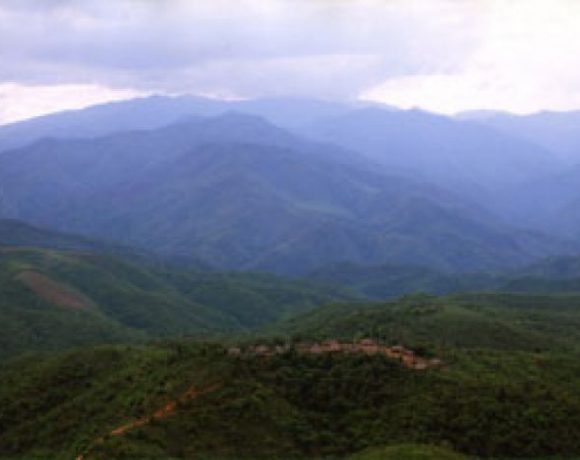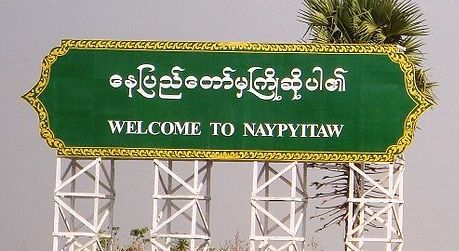Are we missing the point or have we lost the essence?

What does the term “Chin” imply?
The word or the term “Chin” may have had its roots far beyond our recordable memories and could possibly have been used elsewhere in Mongolia, China or Tibet. Yet it is not the history of the term that we are concerned here in this article. In the modern age, since the 19th century, the British used the term “Chin” to identify groups of people living in Northeast India, Northwest Burma and Chittagong Hill Tracts.
The first legal document to mention the name “Chin” is the Chin Hills Regulation 1896 adopted and enforced by the British Colonials.
An excerpt from the document states: “Chins” includes (a) Lushais, (b) Kukis, (c) Burman domiciled in the Chin Hills; and (d) any person who had adopted the customs and language of the Chins and are habitually resident in the Chin Hills.”
This shows that the term “Chin” has been legally used to identify the groups of people living in Northeast India and Northwest Burma. It also proves the ethnic similarities among the different tribes and clans among them (the groups of people).
A historic landmark in the modern history of the Chin is the formation of Chin Hills Special Division in 1948 and the subsequent creation of Chin State in January 1974.
Today, the term “Chin” legally represents the ethnic groups living in Northwestern Burma, in a State officially recognized as “Chin State” by the Burmese (Myanmar) central government as well as the international community including the United Nations.
While the term “Chin” is legally used by outsiders including the Burman and the international community, the Chin used different names to identify themselves viz. Zomi, Laimi, Khumi, Asho, K’Cho, etc., depending on the dialect that each group speaks. Though these names do not have any political entity, each term is used interchangeably with, or equivalent to “Chin” in each respective dialect.
But all of these groups, despite their differences, have an understanding that they share a common ancestry and believe themselves to belong to the same nomenclature. Added to this is the similarity in culture and practices, including moral and religious values.
What does the term ‘Zomi’ imply?
The word “Zomi” is popularly used by the groups of people living in the townships of Tedim and Tonzang, and in the sub-township of Cikha, in present day northern Chin State, to identify themselves. It is believed to be taken from a person name Zo, who is believed to be the ancestor (progenitor) of the Zo people.
While the word “Zomi” (literally meaning Zo people) is a Zo and Tedim dialectal word, it is the first name that had united the various Chin tribes under one religious umbrella.
With the American Baptist Missionaries arriving in Chin State, many people had been converted to Christianity by the mid-20th century, particularly under the Baptist denomination. In March 1953, the three major Baptist Associations – Tedim, Falam and Hakha – unanimously adopted the name “Zomi Baptist Convention (ZBC)”, beginning the era of working together under a common name “Zomi”.
Despite the term Zomi being dialectally leaning towards the Zo and Tedim speaking groups, ZBC had its headquarters in Falam town. ZBC was then connected with the larger national Baptist organization called Myanmar Baptist Convention (MBC) in Rangoon (Yangon).
Though ZBC is a religious organization and has no direct political affiliation, it became the biggest organization representing the Chin people for more than 20 years under the Burma Socialist Programme Party (BSPP) government led by the late General Ne Win.
While there were several other organizations, religious or non-religious, among the Chin people with several different names, ZBC became the sole organization widely accepted across various communities and tribes in Chin State.
While there are disagreements among the various dialect groups within the Chin people, the essence of Zomi as envisioned by Chin leaders including S.T. Hau Go, the man who proposed the name Zomi, is the fraternity among the Chin tribes.
The essence of Zomi, as mentioned above, is different from the literal meaning of the word, because it recognizes the fraternity among the Chin people and stands as a proof of a common nomenclature.
Therefore, it is totally misleading to identify Zomi with just the Tedim and Zo speaking groups because the term Zomi has rightfully represented all the different dialectic groups in Chin State.
The fall of ZBC or dismantling the Union
Though there were several obstacles, bumps and humps along the way, the name “ZBC” did last for sixty well years. In April 2013, the delegates of the ZBC conference unanimously decided to change its name to “Chin Baptist Convention (CBC)”.
Whilst this move might seem to be abandoning or dismantling the unity among the Chin, the move to break up the union had long started. The Tedim speaking group, who had strongly advocated for the use of the word Zomi, was the first group to break away from ZBC.
In April 1995, Baptist associations from the Tedim speaking group broke away from ZBC, citing several differences among the leadership and within the convention, and formed yet another convention named “Zomi Baptist Convention Myanmar (ZBCM)”.
Despite this, the original ZBC continued to stand with other Baptist associations including the Zo Baptist Association (ZBA).
However, the Tedim Baptist Association, which broke away from ZBC to form ZBCM, later left the ZBCM. Together with two other Associations, Northern Tedim Baptist Association and Southern Tedim Baptist Association, it formed “Tedim Baptist Convention (TBC)” directly affiliated with the Myanmar Baptist Convention (MBC).
Whilst these events may have taken place as a result of internal disagreement among the ZBC structure or among the leadership, they do pave a way to disintegration among the Chin, which had been standing as one under the umbrella name of Zomi.
Zo and Zo Baptist Association
Zo is another dialect group of people living in Chin State of Burma. This group is mostly found in towns and villages in Tonzang Township, and parts of Tedim Township as well as in Kalay and Tamu Kabaw valley in Sagaing Region.
Linguistically, the Zo dialect is closest to Tedim dialect. As the name suggests, the group assumes that they are direct descendants of an ancestor name Pu Zo. As Christianity dawned in Chin State, the Zo, like many of their Chin brothers, were converted to Christianity, with a large majority joining the Baptist denomination.
As the closest in dialect and in geographical location, the Zo people were covered under its leadership by the Tedim Baptist Association (TBA), until they were granted an association, Zo Baptist Association (ZBA) in 1962. To date, ZBA has been an active member of the ZBC or now CBC.
The Zo believe that all the people who are called Chin today share the same ancestor and accept the term Zomi as a common name for all the Chin tribes and clans. However, the Zo also understand the need to embrace and accept the term “Chin” as our official identity in Burma and internationally.
Conclusion: The name paradox
Whilst national and international recognition are important for a nation or a race or a community to be accepted and legitimate, it is equally important to have a clear understanding of our true identity.
For the people living in Chin State of northwestern Burma, the various names that we are known with such as Chin, Zomi, Laimi, etc., can create confusion (in fact, it has already created confusion to a certain degree) for other people as well as to ourselves and could even ignite unnecessary enmities among the brothers.
To define Zomi as inclusive only of the Tedim and Zo dialect speaking groups is to nullify the essence of Zomi and to deny the brotherhood of all the Chin, and it is merely a ploy of self-serving hypocrite politicians to win political battleground.
As of now, the term Chin, whether given by outsiders or not, is the one “name” that people in Chin State accept (though there is some resistance to this now). And it is the one “name” that has political weight, and it would be wise to hold on to this name and work for common causes.
But looking back at the experiences from the name Zomi, it would be extremely important for the Laimi (particularly the Hakha group) to refrain from trying to restrict ownership of the term “Chin” to themselves, because we need to remember that inclusive ownership of a common name gives everyone a sense of belonging, and that is the only thing that holds us together.
And finally, we need to be very clear that the name(s) are portraits of our mindset and that the name is not the savior but our conscience and our understanding of the fraternity creates the names. Therefore, if there is any name that saves us it would only be the name of “Jesus Christ”; other than that, there are no names to forge us into one. # By: Mungpi Suantak
The contents of this article are solely the opinions of the author and do not reflect ideologies of any individual(s) or group of people. The author is a former Assistant Editor at Mizzima News Agency, formerly based in New Delhi, India.






